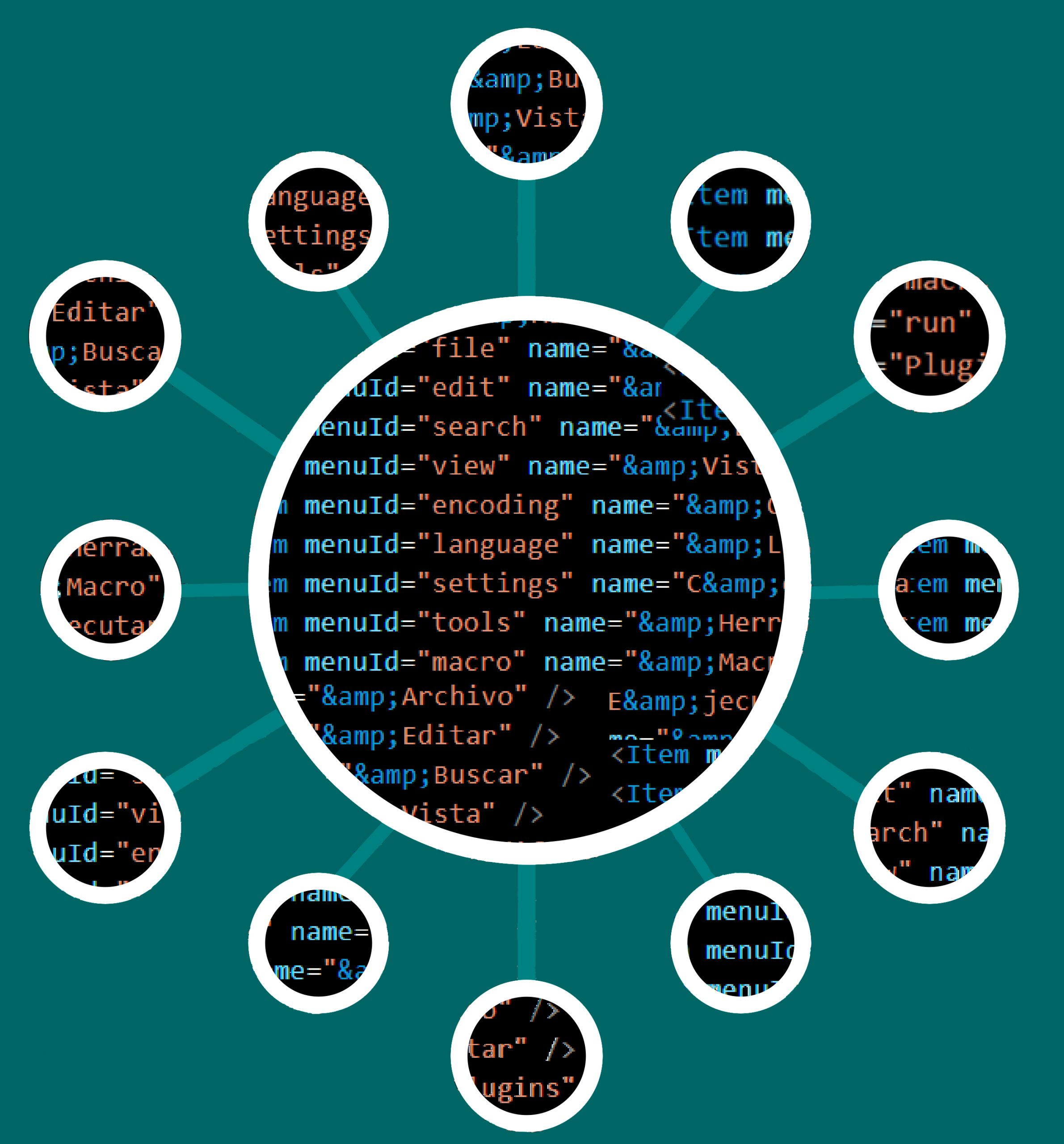Susanna Allés Torrent
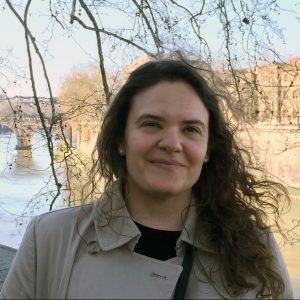
Susanna Allés-Torrent is Assistant Professor in the Department of Modern Languages and Literatures at the University of Miami, where she teaches Digital Humanities, Medieval and Early Modern Romance Literature, and Spanish Culture. She specializes in Medieval and Early Modern Iberia, translation studies, textual scholarship and philology, and she explores several aspects of digital humanities, especially, scholarly digital editions and text technologies broadly. Susanna has a BA in Classics and in Italian Studies, a PhD from the University of Barcelona, and a MA in digital humanities at the École Nationale des Chartes (Paris). Before joining UM, she was postdoctoral fellow at the Spanish National Research Council (CSIC) in Barcelona, and Lecturer in Digital Humanities in the Department of Latin American and Iberian Cultures at Columbia University (2014-2016). Email. ORCID. @sallesto
Gimena del Rio Riande
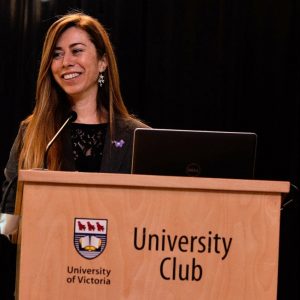
Dr. Gimena del Rio Riande is an Associate Researcher at the Instituto de Investigaciones Bibliográficas y Crítica Textual (IIBICRIT-CONICET, Argentina) and Professor at the University of Buenos Aires. She holds a MA and Summa Cum Laude PhD in Romance Philology (Universidad Complutense de Madrid). Her main academic interests deal with Digital Humanities, Digital Scholarly Edition, and Scholarly Communication and Open Research Practices in the Humanites. She is the director of the Laboratorio de Humanidades Digitales HD CAICYT LAB (CONICET) and co-director of the Master in Digital Humanities (UNED, Spain). She is one of the DOAJ (Directory of Open Access Journals) Ambassadors for Latin America, co-director of the Revista de Humanidades Digitales (RHD), editor at Digital Studies/Le champ numerique (Canada), Hypothèses, Open Methods (DARIAH-EU), and member of the scientific committee of the journals Bibliographica, Relaciones (Mexico), and DH Reviews. She is coordinating a Global Classrooms Program for Digital Minimal Editions with Raffaele Viglianti (2020-2023, University of Maryland-Universidad del Salvador). She is the president of the Asociación Argentina de Humanidades Digitales (AAHD), member of the board of directors at FORCE11, Text Encoding Initiative Consortium, and Pelalgios Network, and co-founder of the Laboratorio de Innovación en Humanidades Digitales (LINHD, UNED) and the Red Argentina de Educación Abierta (AREA). Email. ORCID. @gimenadelr
Mitsunori Ogihara
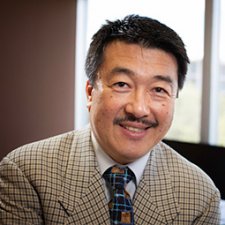
Dr. Mitsunori Ogihara joined the University of Miami in 2007 as Professor in the Department of Computer Science and as Program Director of the Big Data Analytics & Data Mining Program within the Center for Computational Science. More recently, he served as Associate Dean for Digital Library Innovation in the College of Arts and Sciences. Dr. Ogihara obtained his PhD in Information Sciences from the Tokyo Institute of Technology in 1993. From 1994 to 2007, Dr. Ogihara was a Computer Science faculty member at the University of Rochester, where he was promoted to Associate Professor with tenure in 1998, and to full Professor in 2002. He also served as Chair of for the Department from 1999 to 2007. His research interests are in data mining, information retrieval, network traffic data analysis, program behavior analysis, molecular computation, and music information retrieval. Dr. Ogihara is the author of three books: The Complexity Theory Companion, Music Data Mining, and Fundamentals of Java Programming, and the author of more than 200 research papers. He is currently serving as Editor-in-Chief for the Theory of Computing Systems Journal (Springer), and is on the editorial board for the International Journal of Foundations of Computer Science (World Scientific).
Nidia Hernández
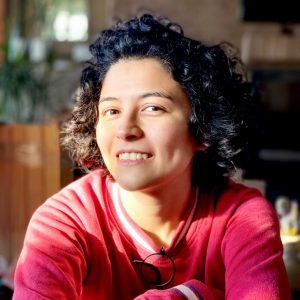
Nidia Hernández is a specialist in automatic processing of dialectal variation. She studied Natural Language Processing at the Institut National des Langues Orientales in Paris. She conducted the first quantitative study of the lenition of -s coda for Latin American Spanish and analyzed the impact of this phenomenon on the performance of automatic speech transcription systems (Automatic Speech Recognition, ASR) for broadcast speech and telephone conversations. Currently, Nidia is working as a research engineer at the Argentine Center for Scientific and Technological Information (CAICyT-CONICET). She develops resources for georeferencing Early Modern Latin American texts and participates on the publication of digital editions for the Digital Humanities laboratory (HDLAB). She is also a member of the Documentation and Research Laboratory in Linguistics and Anthropology (DILA), where she collaborates with the documentation, processing and analysis of endangered languages of South America. Email.
Romina De León
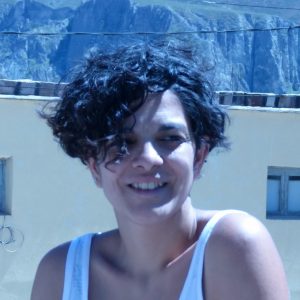
Romina De León is a research support technician at CONICET. She embodies a Liberal Arts approach as she combines former Chemical Engineering studies and a current academical interest in History. She is specialized in African diaspora and has a degree in African Latin American Populations (INAH-Mexico). Romina is a member of the Digital Humanities laboratory of the Argentine Center for Scientific and Technological Information (CAICyT-CONICET), where she participates in the publication of digital editions of Early Modern Latin American texts and the edition of scholar publications: she is secretary of Revista de Humanidades Digitales (UNED-Spain), editor assigned to the historical number of INCIPIT (IIBICRIT-CONICET) and coordinator and editor of the conference proceedings of the Argentine Association of Digital Humanities. Romina is also the responsible of Revista Africanía, a publication focused in African culture. Email. ORCID @rominickyDL
Dieyun Song
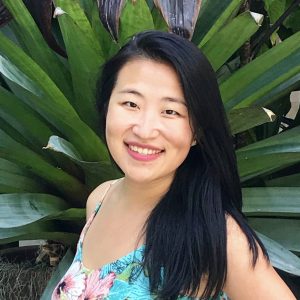
Dieyun Song is a PhD Candidate in History at the University of Miami. She researches at the intersections of U.S.-Latin American relations, development, and philanthropy during the Cold War. Her dissertation is tentatively titled The Power of Philanthropy: Development, Empire, and Non-State Actors in Cold War Colombia, 1961-1973. It highlights the Colombian engagements with foreign state and non-state interventions in education, mass media, and public health that redirected the trajectories of Colombia’s social and political development. Dieyun is interested in employing interdisciplinary approaches in her research, including oral history, sound studies, and digital humanities. She is a co-convener of the Humanities Fieldwork Interdisciplinary Research Group at the University of Miami. She is a Research Assistant of Digital Narratives of COVID-19 and WhatEvery1Says. Her research has been supported by the Rockefeller Archive Center, the John F. Kennedy Presidential Library and Museum, the Lyndon Baines Johnson Foundation, the Tinker Foundation, Digital Humanities Summer Institute, Institute for Advanced Study of the Americas, among others. Email. ORCID.
Jerry Bonnell
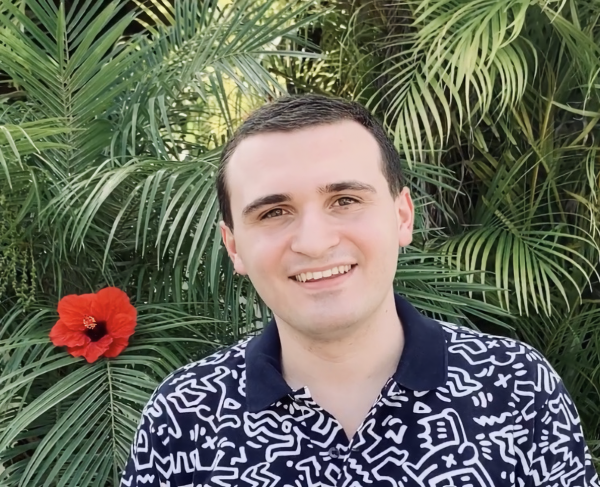
Jerry Bonnell is a Ph.D. student in the Department of Computer Science and a recipient of the UM Fellowship. He has expertise in the tools and methods of Data Mining, Machine Learning, and Natural Language Processing (NLP). Jerry’s research has emphasized interdisciplinarity and is shown in publications aimed at Digital Humanities (DH) readership. Collaborating with the Departments of English and Modern Languages, he develops computational tools to aid the research processes of humanities scholars. In one project, Jerry combined supervised and unsupervised methods of learning into a single workflow to support the machine’s capability in outputting data that grants the scholar new paths with which to read the sources, especially when the desire is to paint a landscape of an individual or theme. More recently, he has expanded his interest to DH scholarship conducted in Japan and is developing tools and methods that can extend the popularity of TEI XML among Asian countries. Jerry has given multiple talks at the annual Japanese Association for Digital Humanities (JADH) conference on his work. The tools he has developed have been made available online to the DH community. Email. ORCID. @jerryrbonnell
Marisol Fila
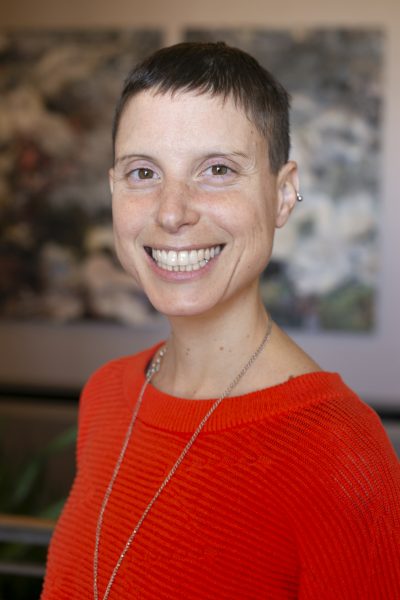
Marisol Fila is a PhD Candidate in Spanish and Portuguese in Romance Languages and Literatures at the University of Michigan. Her research explores articulations between black/diasporic and national identities in twenty-first-century digital and print press from São Paulo, Buenos Aires, and Lisbon. Marisol is also interested in Critical Pedagogy and Digital Humanities and in the ways in which technology and digital media can serve as a tool to share her research and work to a wider audience, but also to develop digital projects in partnership with Afro-descendant organizations across Portuguese and Spanish speaking countries. email; ORCID; Twitter
Digital Humanities Fellows
Yasamin Rezaei
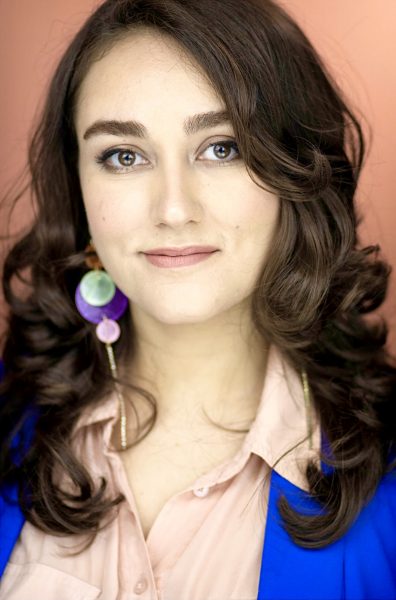
Yasamin Rezaei is a third-year PhD student in the Department of Modern Languages and Literature at the University of Miami. She holds a BS and MS in Process Engineering from the University of Tehran, Iran, and the University of Bologna, Italy, respectively. She is the co-founder of Instasociety, an open-access resource exploring social media and pop culture. She teaches French courses to undergraduate students and sometimes helps with Italian courses at the University of Miami. She currently is a fellow in the Center for the Humanities in the Univesity of Miami. Her research interests include Digital Humanities, New Emerging Media Studies, Electronic Literature, and Performance and Theatre Studies. Website ; Email; Twitter
Ashley Hemm
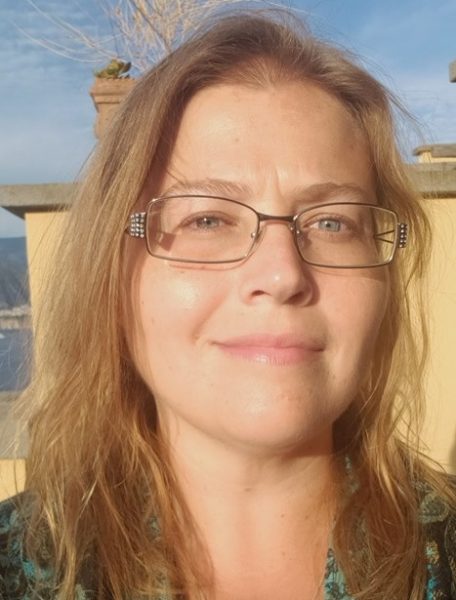
Ashley Hemm is a third-year PhD student in the English Department at the University of Miami, and a 2018-2020 HASTAC Scholar. She holds a BA and MA from the University of New Orleans, where she also served as Instructor of English and Coordinator Associate of First-Year Writing and Creative Writing for two years. She currently serves as the UM Project Manager for WhatEvery1Says, a Mellon-funded, multi-institutional project which examines the humanities in news and social media discourse. Her fields are speculative fiction, fandom studies, and digital humanities–particularly the intersection of sff fans and authors, and their changing interactions over the past century. Through her research and as the 2020-2021 UM American Studies Fellow, Ashley strongly believes that everything is a fandom if you look at it the right way. Website; email; ORCID; @hemm_space.
Matthew Davidson
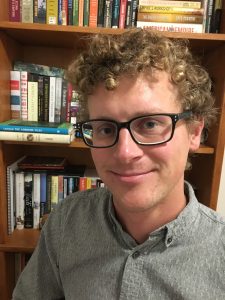
Matthew Davidson is a doctoral candidate in history at the University of Miami. His research focuses on U.S. empire and public health in the Caribbean during the early twentieth century. In particular, his dissertation, Health Under Occupation: Haitian Encounters with U.S. Imperial Medicine, 1915-1934, examines the history of health, medicine, and disease in Haiti during the years of the U.S. occupation. Matthew is also currently a Digital Humanities Data Curation Fellow with the Digital Library of the Caribbean. He holds an M.A. in history from Trent University in Peterborough, Canada, where he also completed his B.A. A full CV can be found here. EMAIL. ORCID. TWITTER.
Samuel Johnson
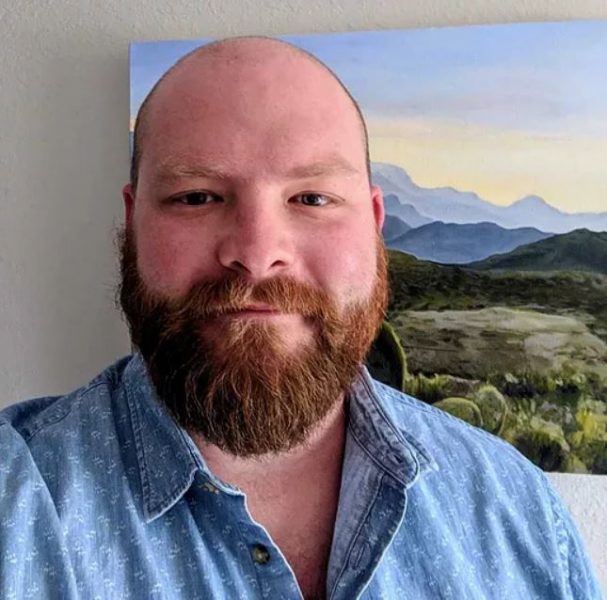
Samuel Johnson is a doctoral candidate in the Literary, Cultural, and Linguistic Studies PhD program at the University of Miami. His research interests include ecocriticism, climate change, human and non-human rights, social class, and the intersections of these themes in literature, film, and new media in Latin America. His research considers the roles of literary, film, and media production emerging from the transnational, intercultural space of the Amazon Rainforest that preserve, share, and uplift of Indigenous ways of knowing and being while seeking justice for the multispecies communities of the Americas. Website, Email, ORCID, Instagram, Twitter.
